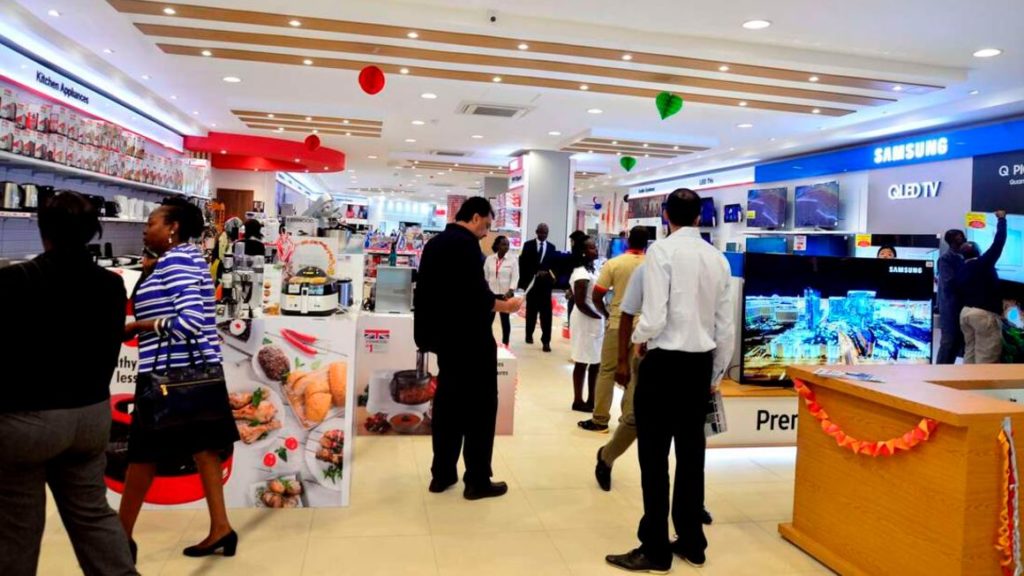An electronics appliances shop in Nairobi. CBK data shows the bulk of loans went into household and consumer durables. FILE PHOTO | NMG Kenyan banks dished out more loans at a time when businesses are laying off workers to cushion against the adverse effects of the Covid-19 pandemic.
CBK data shows the bulk of loans went into household and consumer durables.
More than 20 percent of businesses laid-off workers.
Kenyan banks could be sitting on a ticking time bomb after it emerged that the lenders dished out more loans for consumption at the expense of the productive sectors of the economy.
This comes at a time when businesses are laying off workers to cushion against the adverse effects of the Covid-19 pandemic.
The Central Bank of Kenya monthly economic data shows that banks channelled Ksh2.81 trillion ($25.77 billion) to the private sector last year with over 26 percent (Ksh748.6 billion or $6.86 billion) of the total loans going to households (16.2 percent) and to the acquisition of consumer durables (10.35 percent).
This compares unfavourably with agriculture (three percent), manufacturing (14.54 percent), building and construction (4.2 percent), transport and communication (7.5 percent), finance and insurance (3.6 percent), real estate (14.4 percent), mining and quarry (0.43 percent), business services (5.69 percent) and trade (17 percent).
According to CBK, the latest trend poses a concern on the financial stability of the industry since declining revenues and profitability for firms and furloughs increase credit risks as those with outstanding debt will be unable to service them.
According to the World Bank’s Economic Update for Kenya dated November 2020, more than 20 percent of Kenyan businesses laid off workers, translating into more than one firm in every five firms reducing its workforce in 2020.
According to the report, the country’s economy has been hit hard by Covid-19, severely affecting incomes and jobs, with private sector credit growth remaining modest, while credit to the government accelerated to its fastest hitting Ksh1.86 trillion ($17.06 billion) in December 2020 from Ksh1.65 trillion ($15.13 billion) in January of the same year.
“The generally subdued business environment has seen non-performing loans (NPLs) increase across manufacturing, trade and personal sectors,” according to the report.Global rating agency Moody’s Investor Service noted that some borrowers, primarily smaller borrowers and those in vulnerable sectors, will eventually default on their loan obligations leading to a significant rise in NPLs, with a modest increase toward 14 percent in 2020 and the risk […]
